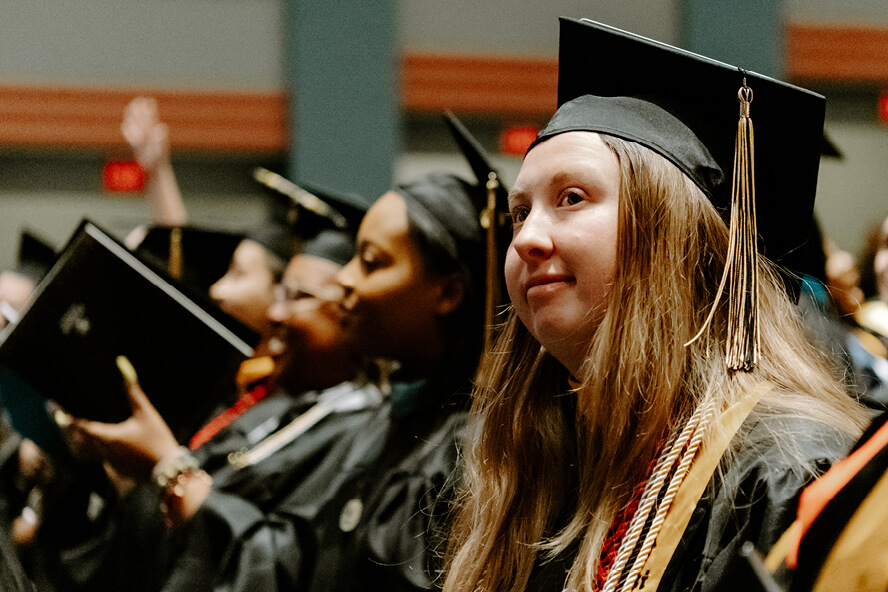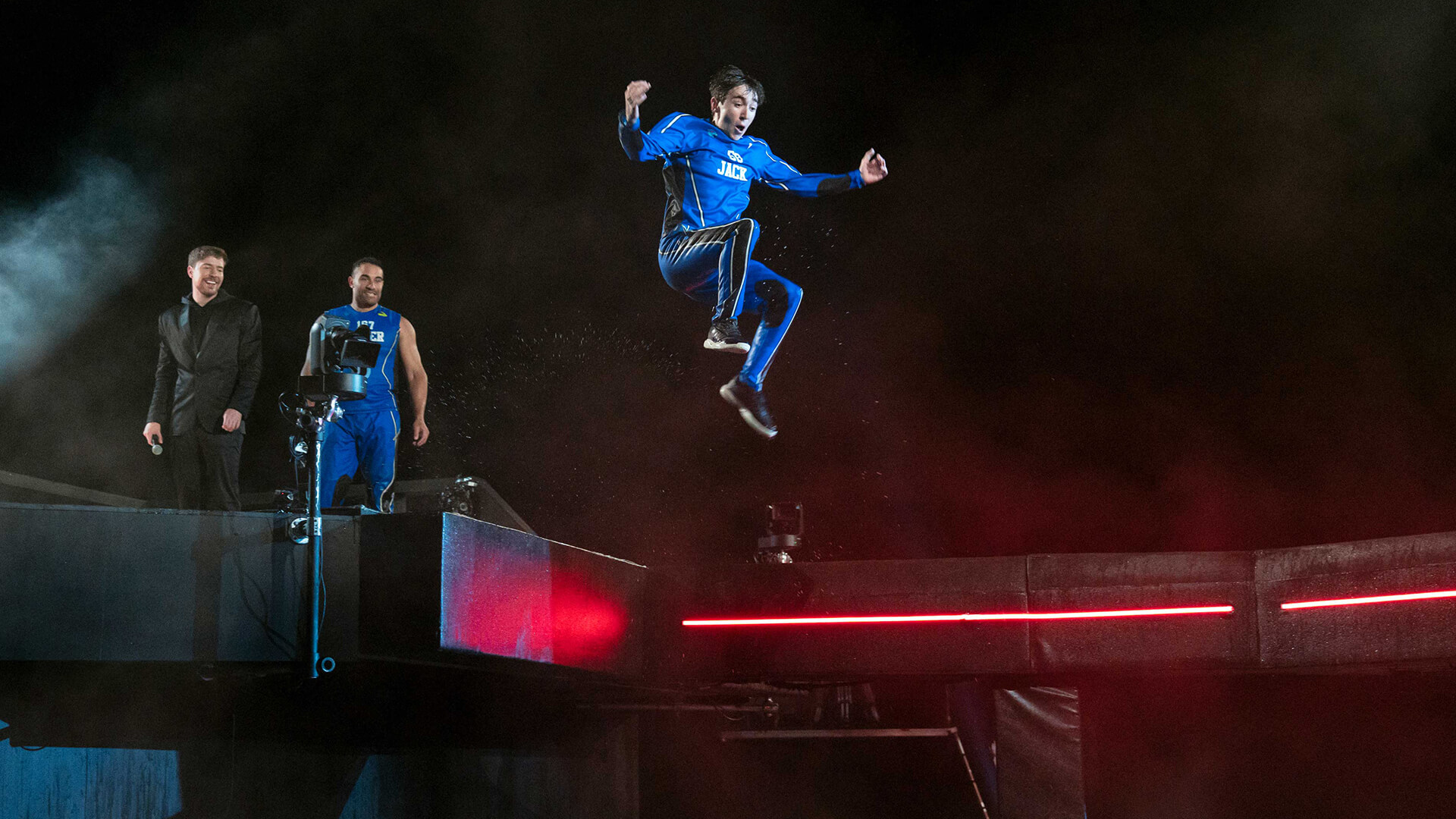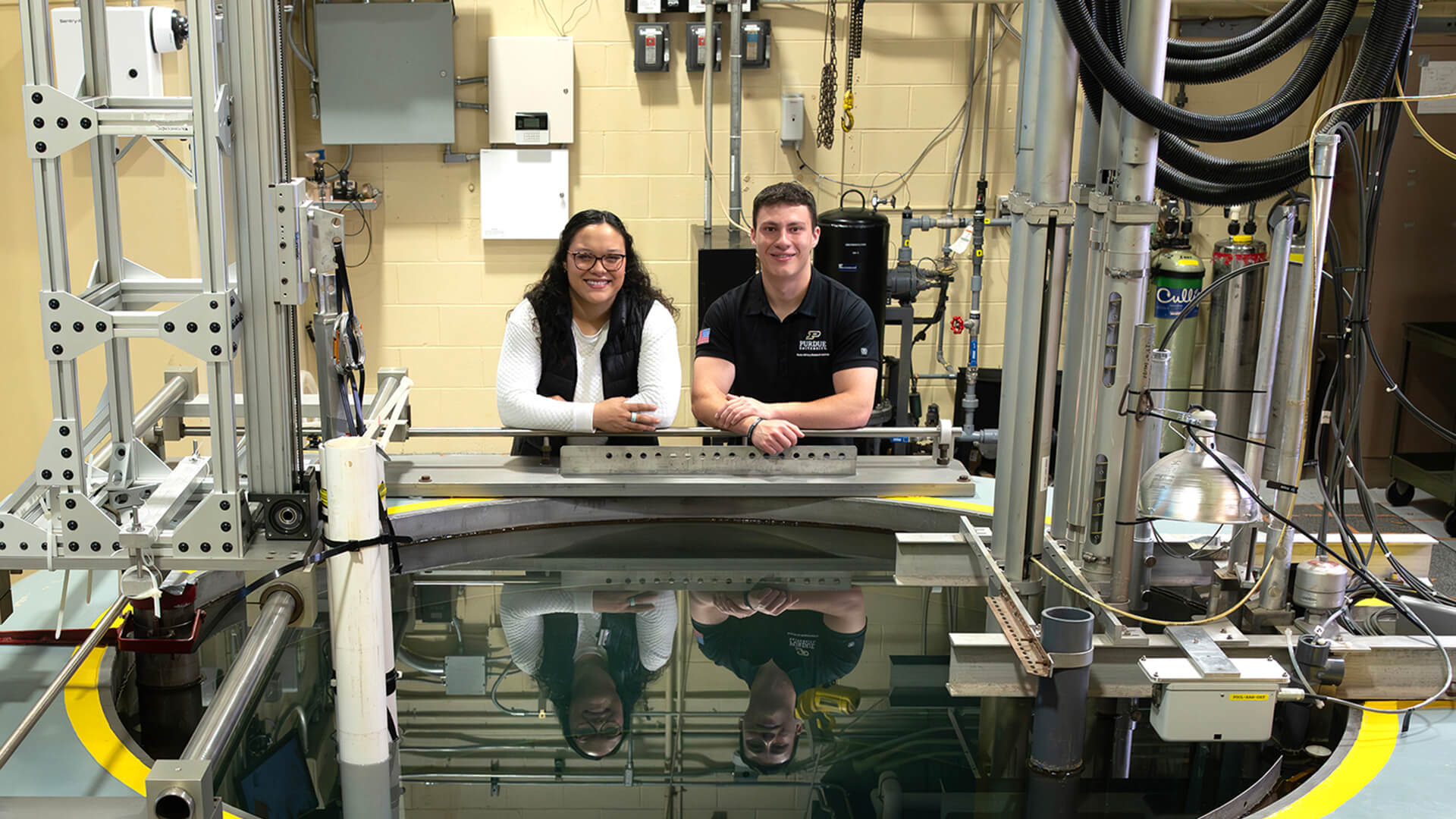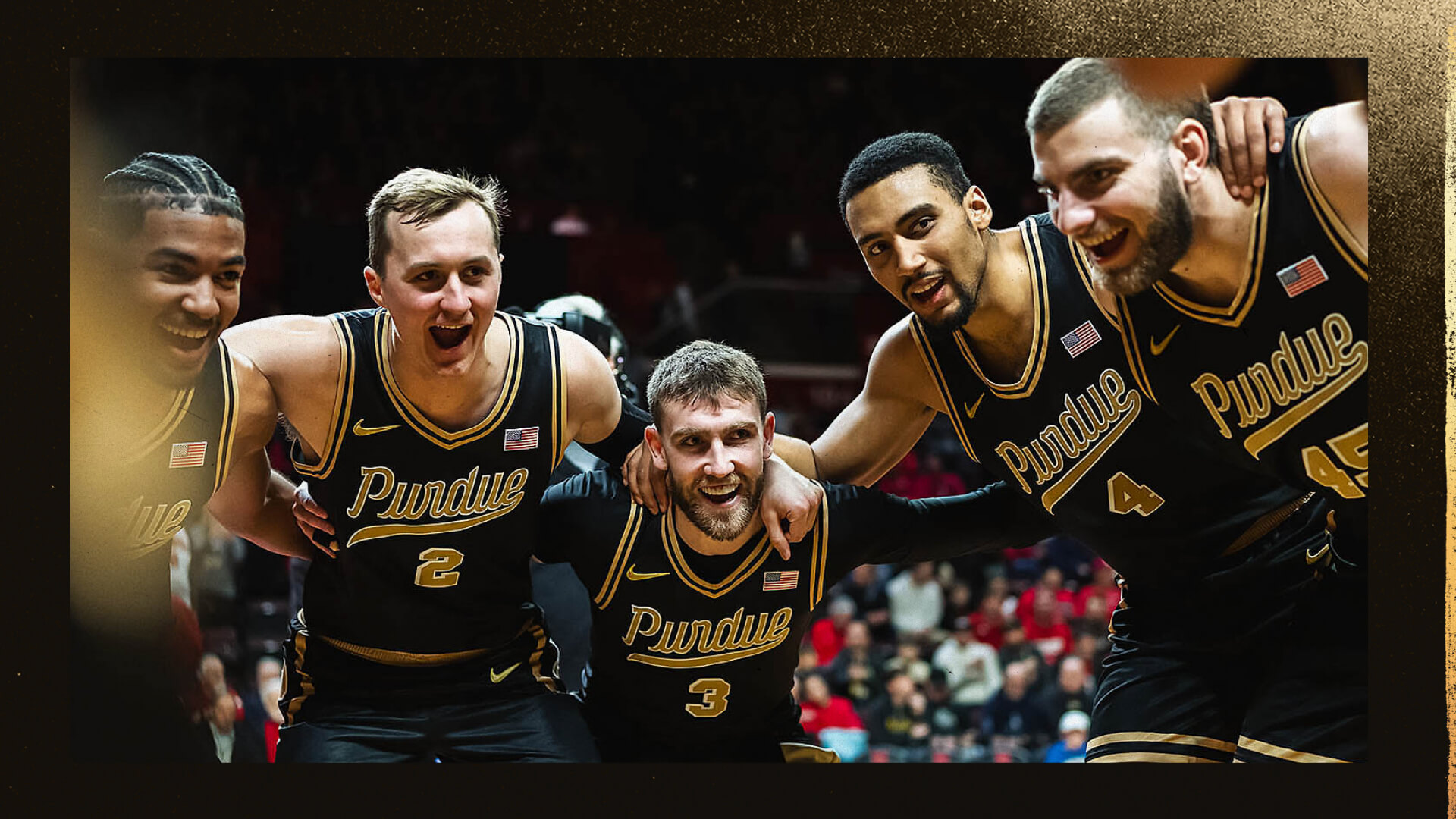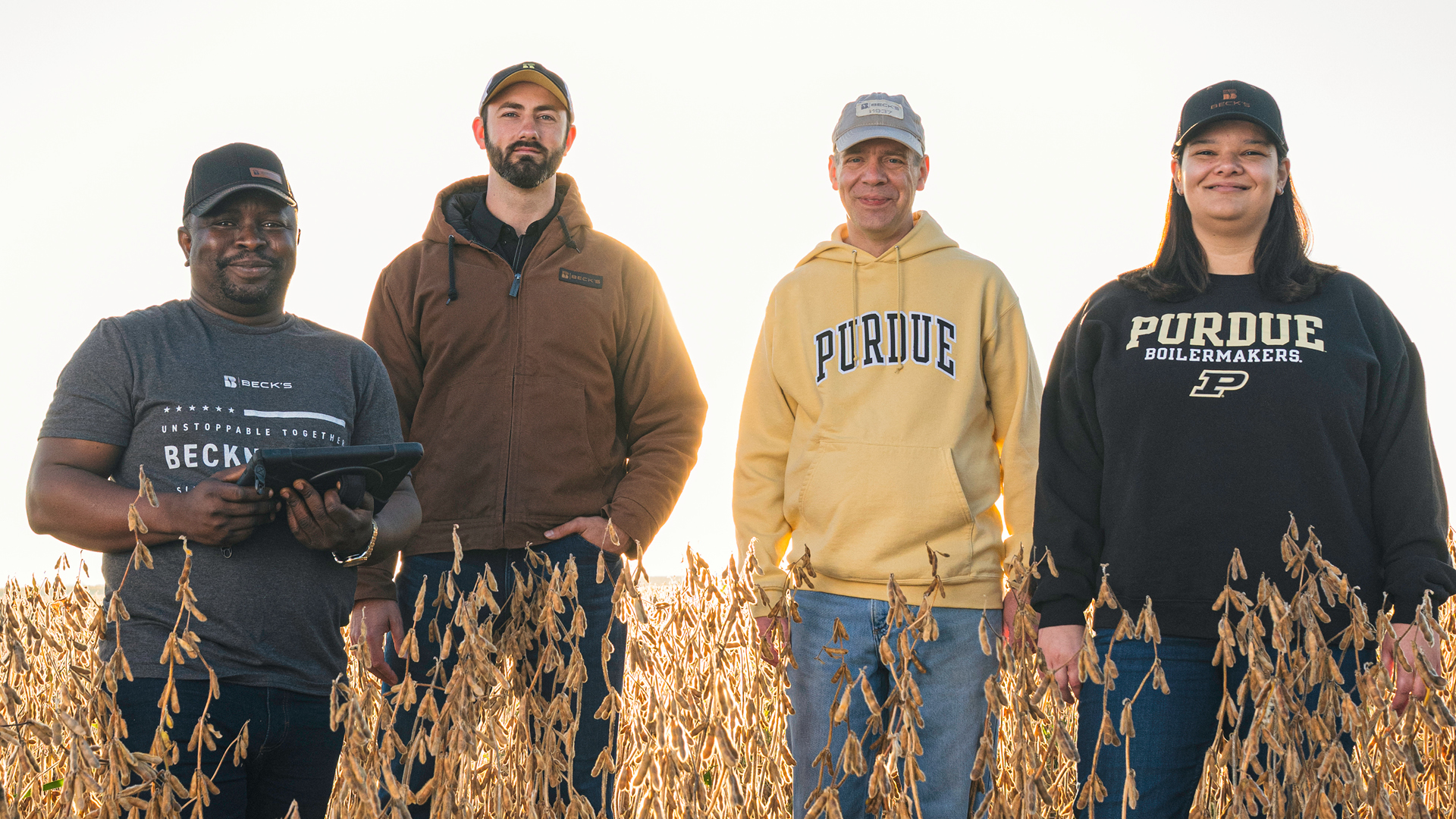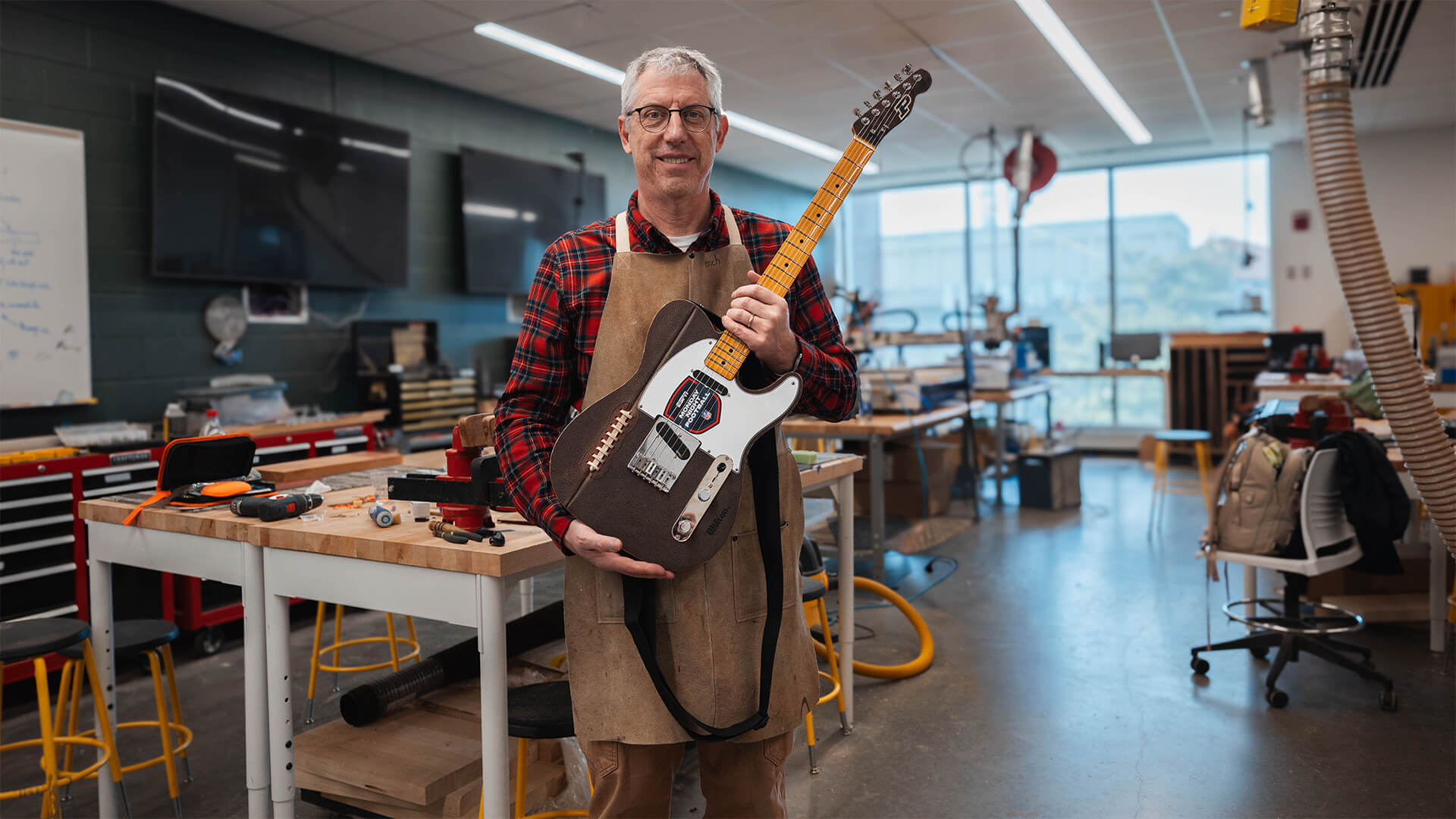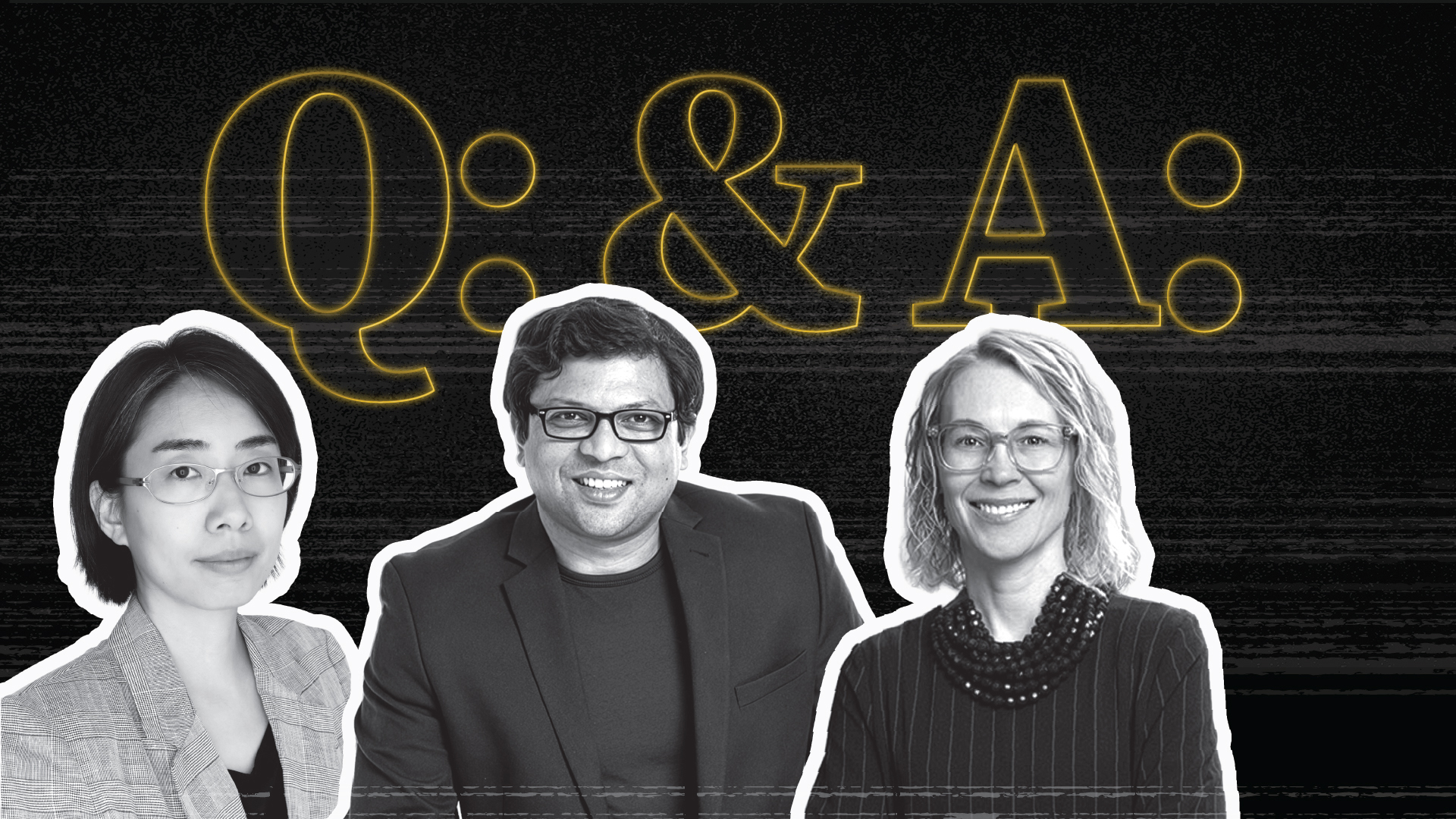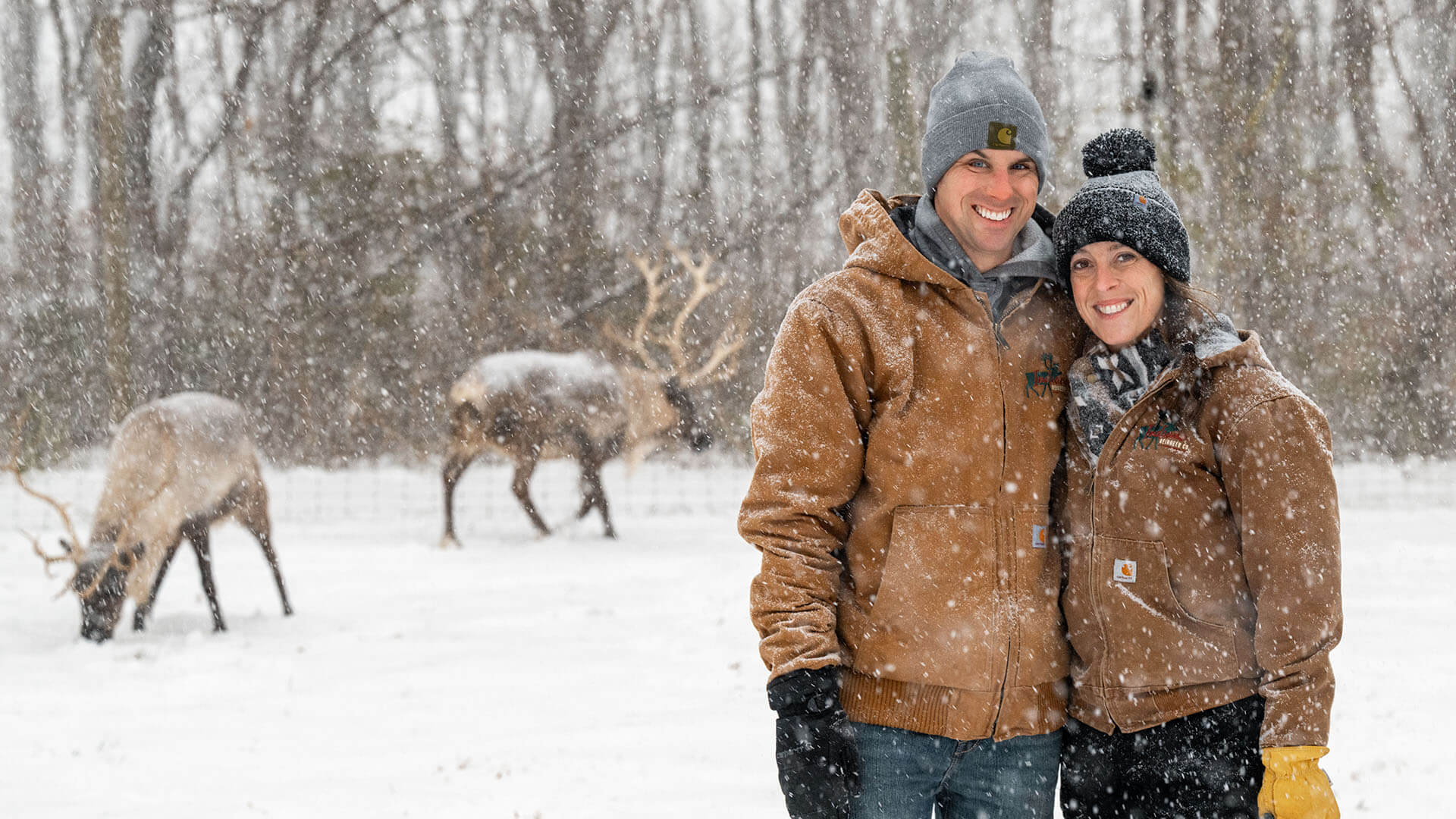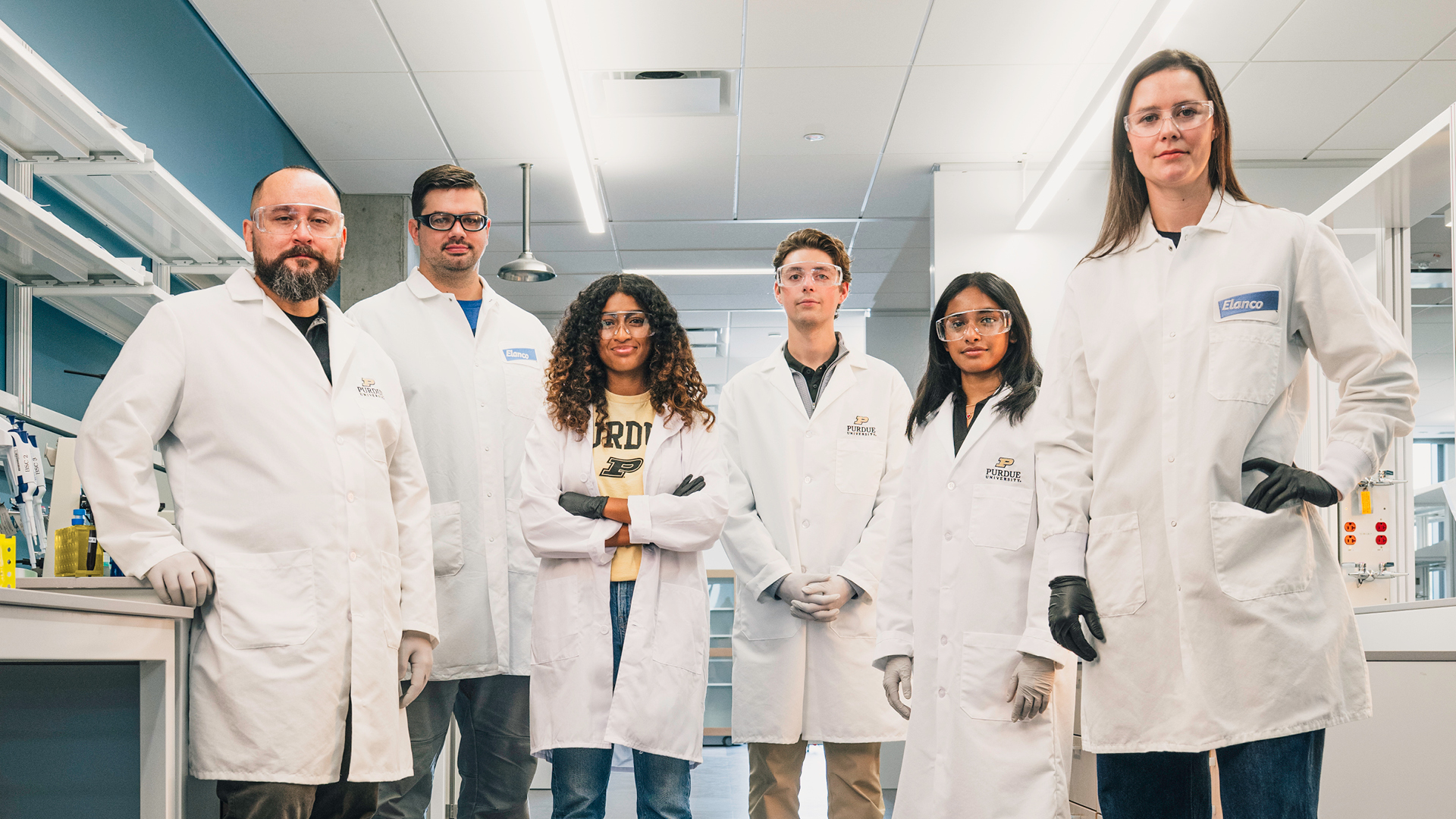Kayli Peterson is driven to succeed
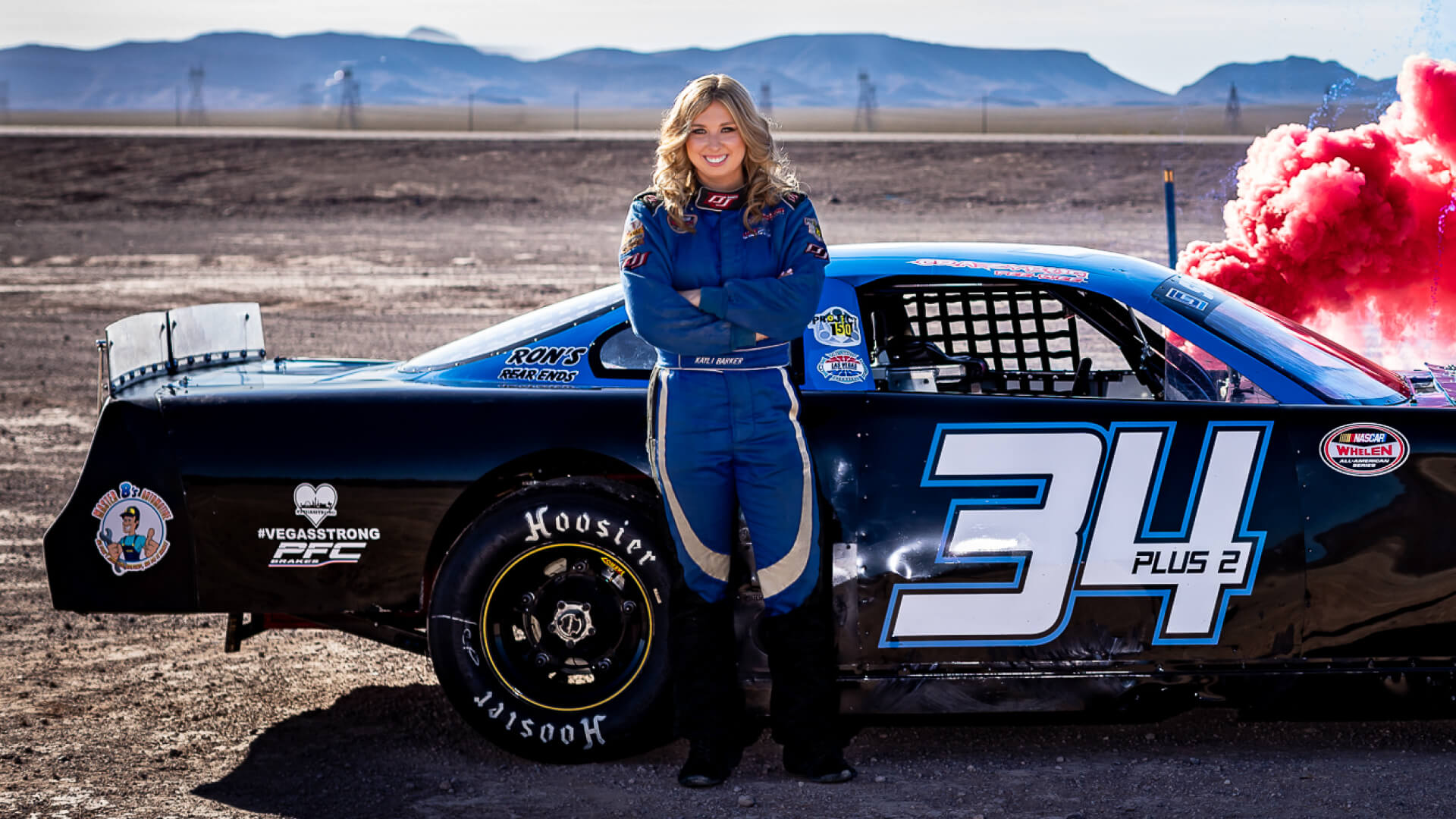
Kayli Peterson is a driver in NASCAR’s Super Late and Modified divisions (photo provided).
Everything’s a race to this driver. Purdue Global is getting her ahead.
To race car driver Kayli Peterson, the art of the comeback isn’t an unfamiliar concept. Winning, falling behind and getting back on top is all just part of success.
“At one point we won like 20 or 21 races in a row. Some years are like that. When you’re clearly the best out there, you go out and you win every weekend,” says Peterson, who drives in NASCAR’s Super Late Model and Modified series. “But then you have the years when it just sucks; you don’t know what’s happening.”
The San Bernardino, California, resident grew up tightening bolts as a toddler with her dad – a driver and a mechanic himself – at the Las Vegas Motor Speedway. But the early start didn’t grant her an easy path. She attributes her success to what she believes in: Want it. Find the problem and solve it. Don’t stop.
This way of thinking matters to Peterson in everything she does, whether she’s working toward trophies or a master’s degree in forensic psychology from Purdue Global.
A natural connection between racing and psychology
Racing started slowly. Literally.
She began racing at eight years old, driving a vehicle similar to a go-kart called a Bandolero. “I was horrible at first,” Peterson says. “I remember my dad asking me, ‘Are you sure you want to do this?’ And I did.”
She wanted it so much that she took an extra driving class and kept practicing until it clicked. It was still another four years before she got her first win in 2009, but then she was unstoppable. She won 11 races that year, plus two more championships, and became the youngest female track champion in Las Vegas history. Finally, in 2012, she became the first female to win a NASCAR Whelen All-American Series race.
Now, at 26, she has collected sponsorships from Mayeda Motorsports, Burgeson’s Heating and A/C and Execuclean Janitorial Services. And she’s still making waves. But she doesn’t attribute those successes to natural talent, money, luck or anything else. It’s pure grit, an overwhelming competitive spirit that takes over when she gets behind the wheel … or does anything.
“I’m a competitive person, for better or worse,” she says with a smirk. “I always want to do my best. Everything’s a race.”
That competitive spirit translated naturally to schoolwork, and it paid off in a big way. Not only did she win a handful of merit scholarships for her undergraduate studies, but she found a new passion. The motivations of human behavior absolutely intrigue her.
“Besides racing, that’s one thing that really interests me,” she says.
So, in 2020, she graduated from the University of Nevada, Las Vegas (UNLV) with a degree in psychology. But that’s when she realized she didn’t just want her degree as another trophy to add to the shelf. This one was different, and it would require more.
(Purdue Global) has a good foundation to make online education work.
Kayli Peterson
MS Forensic Psychology ’23, Purdue Global
A need for stability
As was the case for many people, a lot happened at once for Peterson during the COVID-19 pandemic. Her father-in-law retired from the business he’d begun years ago, and her now-husband Jeff inherited it. She and Jeff bought a home together and moved from Las Vegas to California. She became acquainted with the tax burden of small-business ownership in California. They began planning a wedding. And the most frustrating of all: She couldn’t even find an unpaid internship in psychology that would consider her unless she had a master’s degree.
It was a moment of uncertainty, transition and instability. But she approached it the same as a tough racing season: Find the problem and solve it.
One thing had always stuck with her – she’d always known that her parents grew up struggling financially, and the stress it created in their lives was something Peterson thought about often. As she moved into adulthood, she knew she wanted a career that would provide financial stability. All around her, she sees sources of inspiration.
“My mother-in-law is retiring from Kaiser, which is the hospital system out here, at the end of the year,” she says. “The benefits the company offers are great. She’s going to be OK. She’s set up. My husband owns his own business, so because California taxes are so high, I need to be the one that’s financially steady.
“I want to work somewhere where the long term is secure. If I’m going to put 25 years in somewhere, I want to make sure I’m good for the next 25.”
With the “when” and the “why” of it clear to her, Peterson considered where to take this next step, and it had to fit within the new confines of pandemic life. She wanted a fully online institution with an established program in her area of interest.
“With other universities, it was a lot of in-person classes with a few online,” she says.
Institutions all over were scrambling to come up with systems that could be effective without in-person instruction. The best that many universities could do was some kind of hybrid setup. But Purdue Global was well established at online learning.
“I had a fantastic experience with my master’s program, and it was way better than any online stuff I tried anywhere else,” she says. “Purdue Global is geared toward that, and they have a good foundation to make online education work. If it becomes an option to do a PhD in psychology there, I would 1000% do it.”
For now, she has earned that master’s degree, and with it, the relief of knowing she has a solid chance at a long career that she loves and the potential for stability for her family. She sealed the deal by walking the stage and claiming her diploma at Purdue Global’s 2023 Spring Commencement in West Lafayette.
If I’m going to put 25 years in (with an employer), I want to make sure I’m good for the next 25.
Kayli Peterson MS Forensic Psychology ’23, Purdue Global
Run as hard as you can
With the past three years feeling less like those crush-the-competition seasons of racing, and more similar to transitioning from one racing division to another (“There’s always a learning curve,” she says), Peterson says doubts and nerves are expected. But she hopes others don’t let that stop them. No matter how successful a person becomes, she says, imposter syndrome will often arise to shake their confidence in the bold steps they take toward the life they want.
“Even today, I still have those doubts — like, am I really any good?” she says. “The last several months or so have been a real struggle on the track, for instance.”
Part of it, she says, was a mechanical problem with her car that, once fixed, shaved half a second off her time. In the racing world, that’s a massive difference. Another part of the issue was nerves and mental blockages. But she says it works the same on the track as it does in the classroom and in life — the important thing is that you don’t take that as a sign to quit. The finish line is completely worth it. Now, with her master’s degree from Purdue Global, she feels like she has many options for a stable, secure career in psychology.
And she believes others can do it, too. As long as they don’t quit.
“Of course, you’re gonna have doubts when things are rough. But you can’t let it get to you,” Peterson says. “You just have to run as hard as you can.”
